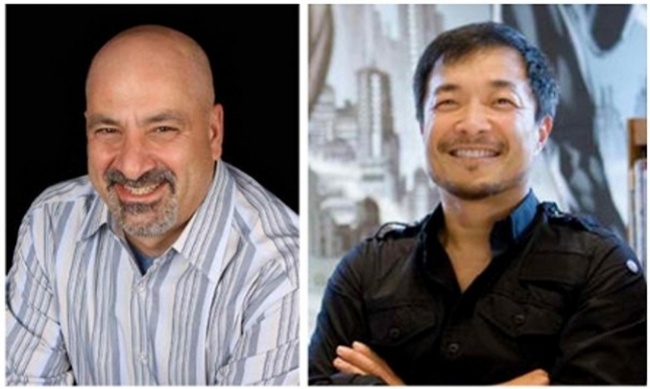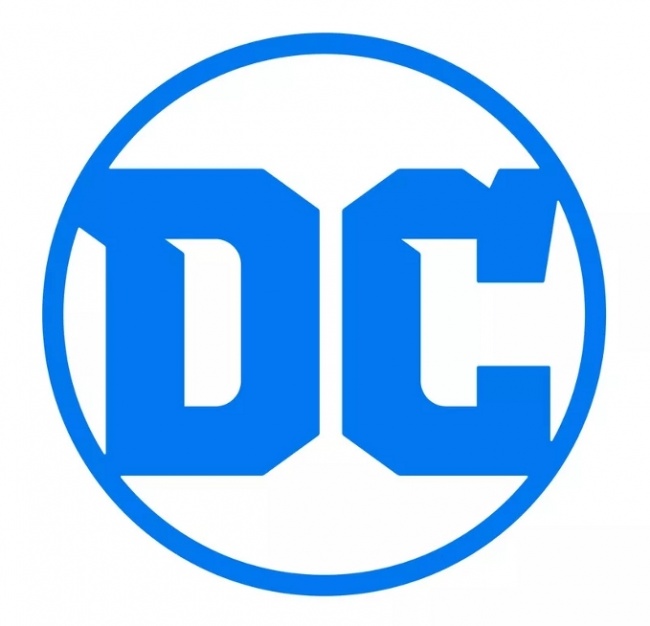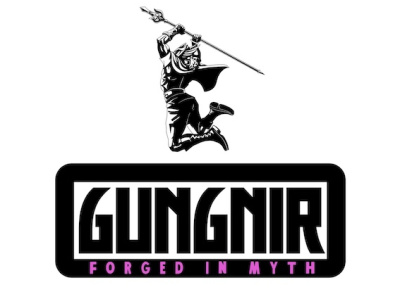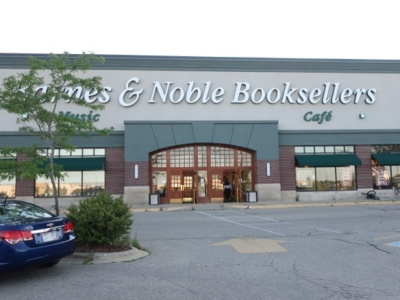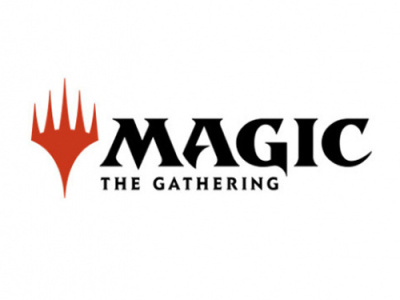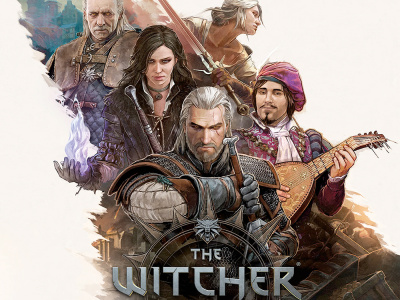ICv2: Comics and graphic novel sales were down last year across channels (see "Comics and Graphic Novel Sales Down 6.5% in 2017"). Why do you think that is?
Jim Lee: I think there were a couple things. We had higher returns on the book side.
That's from bad store traffic at Barnes & Noble?
Lee: Right, but it was something that was endemic of brick and mortar in general. I think they had a very soft fourth quarter last year. Also, we were past the first wave of "Rebirth" trades. From year to year, we had a much stronger 2016, versus 2017, in terms of the book trade product.
That was primarily it, I think. On the front-list side, some of our print runs were not as high as before. There's some softness in that category in general. That said, this year, periodical numbers have been exceeding our forecast, they've rebounded very, very sharply, very, very strongly for us. There is some continued softness on the trade side that we're concerned about.
In the book channel specifically, you mean?
Lee: Book channel, yes.
Dan Didio: My fear is that there's probably an over‑saturation of product. If you're looking at the numbers, you're looking at 400 new periodicals a month. I can't even imagine the number of collections that come out a month. It's overwhelming.
It's a lot of products. There's still a finite dollar in the marketplace, at least in the direct marketplace, that we see it recycles through. The base price for periodical comics now is $3.99, for the most part. I have to believe that some of that money goes to buying books at a higher price [rather] than buying a wider set of books that are out there.
We're just keeping an eye on the market itself. That's one of the reasons why we're trying different initiatives in other areas, because if there is a sense of contraction taking place, then we've got to show growth in areas that we think there's opportunity, like the young adult market.
Lee: I think even The Walking Dead sales peak was probably prior to last year, the years before. That was really an exceptionally great-selling trade that brought in a lot of customers that were buying other material as well. As that show's popularity has waned a bit, that's impacted, obviously, sales for that book in the mass market channel.
We did retailer interviews for the magazine we just put out, and they definitely felt like there are a lot of choices for consumers, which makes it harder for any single title to succeed. What are you doing in terms of number of releases in 2018 versus 2017?
Lee: A couple things that we've done: One, we've gone to our own catalog. We're not part of the Diamond Previews. We have DC Nations. We recognize that we want to really separate this notion of ordering the books and finding the right time to promote and market the books because they were one and the same before.
Before, you were given the solicitations, that's when you put out the ads. You were assuming that a lot of the customers were buying or picking up Previews to get the advance information about the comics, doing those orders. We recognize that by separating the two, we can promote the comics that are coming out closer to when we want to promote them.
We have a better opportunity to promote them closer to on-sale, and when we go out and give the information, we can give it directly to the retailers in a more succinct way, in a format that's not cluttered by all this other stuff that's being promoted or solicited at the same time.
Didio: For the sheer volume, we're probably producing close to what we did in '17, and probably projecting the same for '19.
If you're looking at the expansion of the market, we keep on seeing new companies being introduced every day. They seem to be coming out with a much stronger amount of content, right coming out of the gate. It's not a slow buildup, these guys are coming out on the ground running. I think that's probably adding that burden onto the retailers, not just the product line that we do. Like we said, we're pretty consistent with what we put out, but there’s just this constant introduction of new material and new companies that they're constantly having to choose from.
Lee: We’ve tried to be fairly judicious in doing retailer exclusive covers, and really have tried to put programs methodology to the variant covers that we do. It's something that we do think about, sit and strategize about.
In your interview with Publishers Weekly, you talked about becoming a book publisher (although DC's been a book publisher for 20 years). The question is...
Didio: Actually, I always like to correct. We're a publisher who publishes books, but a book publisher requires methodology and understanding of systems that is different from what we do as we feed into the Direct Market. It’s on a different cadence on release of product. It also has a different style of packaging and ways that we promote.
Lee: We have the solicitation process, the galleys, all that.
Didio: That's where we talk about being a book publisher. It's about changing some of our internal logics, habits, and how we produce, in order to match the schedules of the people who are releasing books directly to the bookstore market, not as something that was repackaged periodical material.
As the book trade becomes more important, the relative size of the comic stores within the overall comic business is shrinking. What do you make of that shrinking relative importance of comic stores, and where do you think that's headed?
Lee: I think the business changes every several years. You look at what comic book shops carry as merch, a lot of them branch out into games and cards. The whole industry is a lot more segmented. Not every single comic book store is going have the kinds of inventory they sell.
I think the whole industry has diversified over the years, as retailers have gotten smart, and figured out who their clientele are and what they want to buy.
Didio: Also, we're in contact with Diamond on this on a regular basis about what's happening in the marketplace. There's a lot of people talking about what you're just saying, but the aggregate numbers they give us aren't dramatically different year‑to‑year.
Comic stores aren't going down, it's that the new channels are growing.
Didio: There's nothing wrong with trying to push out into more markets. The more places we have our books, it's better. We don't want to see one in place of the other. Anything that we do, Walmart or even bookstores, it's there purely to be additive to the direct market, and not a replacement.
Lee: I don't think we're as sensitive to the percentages, but more to the absolute numbers in each channel, what we're doing, year‑to‑year. The push to get into YA books is that there's a huge opportunity there.
Didio: For everybody.
Lee: It's the fastest‑growing segment of bookstores, and we want to be part of that. We have the characters, and we hire the people to tell the best stories with our characters on that.
There have been some changes in the management structure at DC (see "Geoff Johns Out as DC President, CCO; Moves to Producing, Writing"). How have your roles changed in the last couple of months?
Didio: I have to call him sir.
[laughter]
Didio: Sir Jim.
Lee: "Didio, get in here."
[laughter]
Didio: My day stays the same. He's doubled his workload. I don't know how he's doing it. That's the big question.
Lee: I'm running around a little bit. I feel like I'm in perpetual Comic-Con mode. You know how it feels, when you feel there's stuff going on at all places at all times. I've added just more responsibilities onto my current role as co‑publisher with Dan, and that's stepping into Geoff's Chief Creative Officer role.
What does that mean? You're working with the other media more, right?
Lee: Yeah, I'm leading the support team that helps the other divisions within Warner Bros. adapt and bring our characters and stories to life in other media. That would be, film, TV, animation, games, and consumer products.
You were already pretty active in games, weren't you?
Lee: Less so recently, but years ago, when I worked on DC Universe Online, and then there were the other couple products that I've worked on. That's one of the things I've been more involved in, for sure, because of my own interest in that space.
Geoff was also involved. He was writing shows, he was producing shows. He's moving more to that 100 percent of the time now. He will be a pure creative. I'm not doing that part of his job. I'm not breaking story with people.
It's more about empowering my team to be the best support, proselytizers, and educators of the people within Warner Bros. that want to do things with our characters. There's a lot of meetings. There's a lot going on.
There's a lot of stuff going backwards that I need to get caught up on, but at the same time, being current with all the new stuff that's being developed, all the new scripts. There's a lot of reading of scripts, giving notes, and things like that.
Are there more changes coming? Is there going to be a new DC CEO?
Lee: Our boss is Thomas Gewecke, and he was named as the interim head.
There's going to be a permanent one at some point?
Lee: I would think.
Didio: One would hope.
What about the AT&T acquisition? We saw new management was visiting some divisions. Are you feeling any changes from the acquisition?
Lee: [New WarnerMedia CEO] John Stankey came and gave a town hall at Warner Bros. His message was really positive. He said, "Look, we recognize that the cultures are different. We don't want to upset the apple cart on that front. You guys are the masters of creating content. We want you to continue doing that. If anything, we're going to give you the resources to do it bigger, and hopefully better." I think that's the mandate.
For our day‑to‑day, nothing's really changed. It's full steam ahead.
A couple of quick questions on the Walmart program (see "Walmart to Carry Exclusive DC Comics in 3,000 Stores”). Who's servicing the stores?
Didio: It's a company called MJ Holdings. They're handling it for us. The programs, we build it with them for Walmart.
They're like the category manager for the collectibles section?
Lee: Yeah.
They're restocking, is that right?
Didio: Just for the first month. What happened was that we're on a release pattern of two books every two weeks. We wanted to launch with all four books at the start. That's the reason why there's a restock taking place. Instead of two weeks later introducing two new titles, they're actually restocking with four titles. Starting in the month of August, you'll get two new books every two weeks.
Are there returns?
Didio: As of right now, there are no returns.
Does that mean that everything's selling out, or that you're not taking any returns?
Didio: Right now, we're working with them to find the right way to stock this. Ultimately, once we do that, we'll work out an agreement on how we manage the inventory.
And any excess?
Didio: Yeah.
You must be seeing some POS data. What's the sell‑through been like so far?
Didio: The sell‑through has been very strong. The problem has been that a lot of the places had sold out. Because they're waiting two weeks, the restock is actually taking place right now.
Lee: They're very happy with the sales, though.
Didio: Yeah, very excited about it.
The number of stores described in the announcement is about two‑thirds of the Walmarts. How were those stores picked?
Didio: They're based on the aisle size and the location.
Lee: I think generally, they're the superstores.
Didio: Yeah, it's the larger stores.
Lee: The ones that have groceries.
Didio: Also, it's because they have the shelf space that's available for us. We have a plan in place if this is successful on how to expand into the stores with the smaller footprint, but we're going to wait to see how it goes. We're going to a re-evaluation after the first six months.
Why are you doing continuing stories for this program? It seems like that's more of an impulse location.
Didio: Because that's our business. We're in the periodical business. There are complete stories. There are complete ideas in our books. A lot of the reprint material that we're trying to do is keep it as contemporary as possible, and those are periodical in the nature of the storytelling; we haven’t done many standalones. We as an industry have gotten away from that. Therefore, we want to make sure that we create a habitual-buying return customer. We want to make sure the stories have complete thoughts in each issue, but something that brings them back for the continuing issues.
Lee: I think if you were doing standalone issues, every issue would be number one, right? I wouldn't have an issue two, three, four, or five. I think most of our best reprint material, they're serialized content. You want to lead into that.



